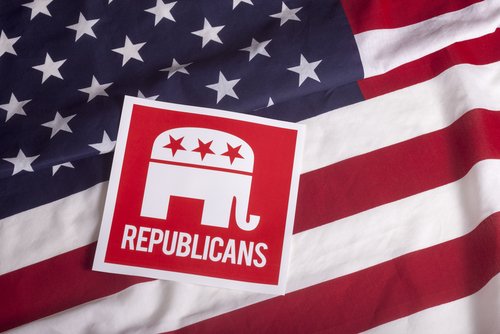Republicans choosing to acquit Donald Trump will find their decision may come back to bite them, writes Lincoln Mitchell.
New York (Brussels Morning) Faced with overwhelming evidence that Donald Trump incited, encouraged and seemingly enjoyed the violent insurrection at the Capitol on 6 January, 43 of the 50 Republican senators voted to acquit the former president, making it clear that they did not think what Trump did was worthy of impeachment.
There are only two reasons why those 43 senators voted to acquit Trump; either they were afraid of a primary from a Trump-backed opponent or they are true believers in what can perhaps best be described as the cult of Trump. In some respects, this is a distinction without a difference, but while those who genuinely support Trump did, in fact, vote their conscience, those who were making political calculations, may have made a mistake.
How the numbers stack up
Of the 43 senators who voted to acquit, only 13 are up for reelection in 2022. Some who voted to convict do not have to go before the voters until 2024 or 2026, while others have already announced they are not seeking reelection. Of those 13 who have to run in 2022, 12 are in safe Republican states so are wise to be more concerned about potential primary challenges than the general election in 2022.
One more of these senators, Marco Rubio, is in a state that leans Republican, but which could be competitive in a general election. However, because Florida is now the home state of the Trump clan, he is in danger of a primary challenge as well, perhaps from a member of the Trump family.
The first thing this should tell us is that while 13 senators may have made a political calculation, 30 Republican senators voted to acquit Donald Trump despite no short-term political threat. They might have confronted censure from their state Republican party and attacks in the right wing media, but no immediate political consequences. Therefore, we can only interpret those acquittal votes as, at least in substantial part, reflecting the actual values and beliefs of the senators in question. The other 13 may have been making a strategic vote, but we cannot know that for sure.
What the call for investigations tell us
The problem with the political calculation is that it will not age well. In the days since the acquittal, some Republicans have called for more investigations into what happened on 6 January and the role that Trump played in those events. It is apparent that any investigations will only make Trump’s role appear worse than it already looks. Meanwhile the Trump base, and Trump himself, may still be strong enough in 2022 to influence primaries, but with each passing year both may well become weaker and less relevant.
Americans frequently have short memories when it comes to politics, so it is possible that by 2026 or 2028 voters will have forgotten about the siege of the Capitol and not hold the acquittal vote against anybody, but there is another precedent that should not be overlooked.
There have been a handful of examples of political parties making missteps that have hurt them for a very long time. For example, the Democratic Party was not relevant in most of the north for two generations after the Civil War. Similarly, Herbert Hoover’s mishandling of the depression helped lock the Republicans out of national power for 20 years.
Seeking reelection
Senators like Rubio, John Thune of South Dakota or even Ted Cruz of Texas have reelection campaigns and possibly bids for higher office in their future beyond 2022. Their acquittal vote may look very different when those races roll around. Perhaps not right away, but by 2028 having voted for this acquittal could be a mark against any candidate in all but the most solidly conservative states. This is why we should be skeptical about the current reports that the Republicans want to have further investigations into 6 January.
The acquittal vote can only be understood as part of a broader Republican attempt to minimise the events of 6 January. This endeavor began almost immediately after those events as the overwhelming majority of house Republicans voted not to impeach and then Mitch McConnell, in the waning days of his tenure as senate majority leader, decided not to call the senate back for a trial while Trump was still in office. Further investigations would undermine those efforts to minimise the insurrection.
That is why the Republican calls for this are so puzzling. One possible explanation is that while the presentations by the house impeachment managers were not enough to persuade 17 Republican senators to convict, they were powerful enough to show that this story is not going away.
Those Republican senators who voted to acquit, despite efforts to parse their decision and have it both ways, need this story to go away. Further investigation will, at the very least, make their acquittal vote look even worse, but could also reveal a degree of complicity from the Republican Party that could do great damage to their electoral standing for years.




